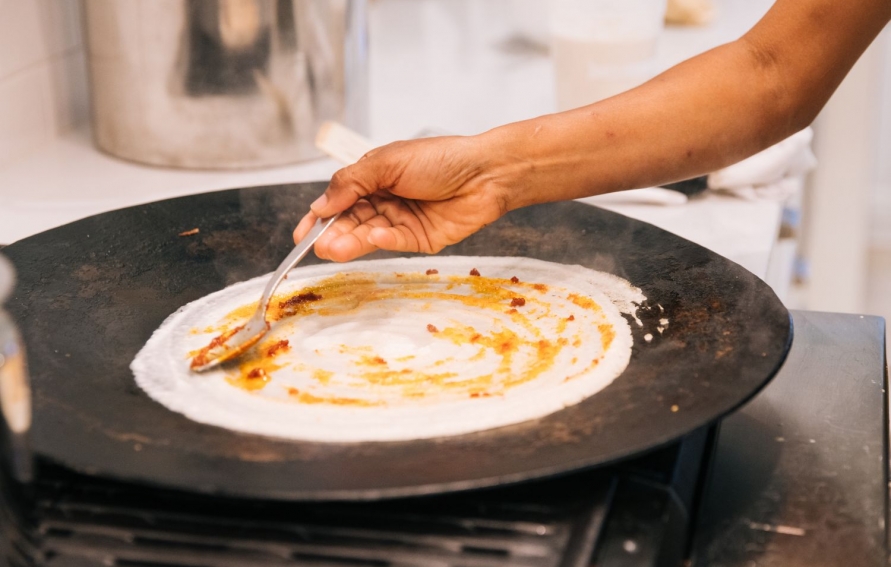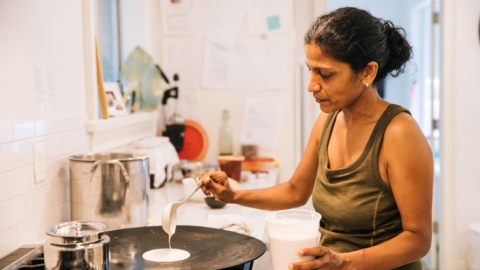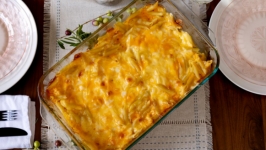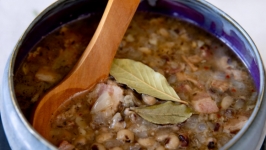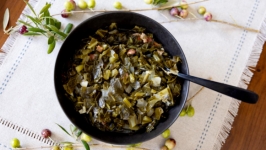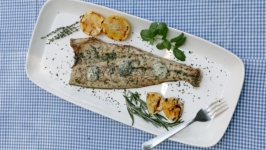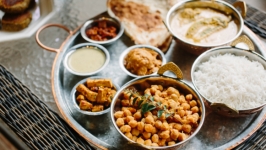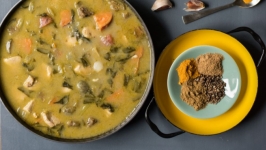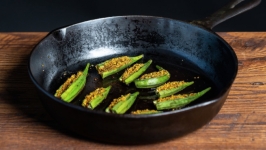Ingredients
- 3 cups uncooked rice
- 1 cup urad daal (black lentil beans)*
- 1 teaspoon whole fenugreek seeds
- 2 teaspoons sea salt, to taste
- 6 cups water
- Ghee, for cooking
Instructions
To make dosa batter: Combine rice and beans in a large bowl and wash in cold water until water is clear (about 4 to 5 times). Add fenugreek seeds and water and cover the bowl with a clean dish towel. Soak the mixture at room temperature for 12 hours. Drain rice and beans, reserving the soaking water for the batter. In a blender, grind rice-bean mixture to a fine paste. If needed, add enough reserved water to create a consistency similar to pancake batter. Transfer the mixture to a large pot, cover with a clean dish towel and allow batter to ferment at room temperature for 24 to 36 hours, stirring every 6 to 8 hours.
The dosa batter is ready when it tastes tangy and the surface has tiny little bubbles. If the batter has doubled in size you are on track to being a good dosa maker. Add salt, then stir. Refrigerate if not using immediately.
To peel (cook) dosas: Heat a griddle, cast iron pan or large sauté pan over medium heat. When the pan is hot, spread a thin layer of batter in the pan. You can either tilt the pan or use the back of a spoon and swirl the batter to quickly coat the bottom. The dosa should be as thin as a crepe. Tiny holes will form on the top of the dosa. (They look like little dimples smiling at you.) Baste the top of the dosa with a little bit of ghee.
The dosa is cooked when the top no longer looks shiny and wet. Look for a dull and slightly spongy surface with crispy edges and the bottom is golden brown. Using a fish spatula, gently lift up the edges of the dosa and fold into a roll.
Remember it takes a couple of minutes to make and peel off a dosa that you can be proud of, but it takes a lifetime to perfect. I hope you become as obsessed and competitive about peeling off the best dosa as we are in our homes.
* Looking for urad daal, fenugreek or ghee? Visit our Guide to International markets.

